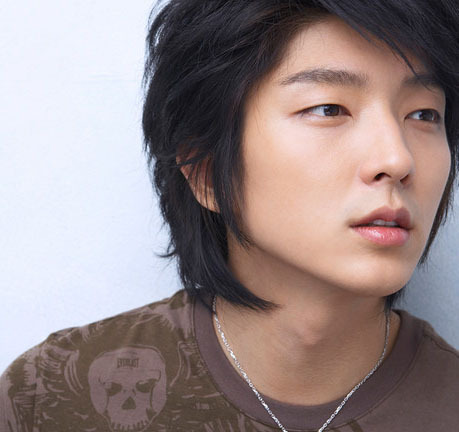Korean Actors And Actresses Biography.
Ahn Sung-ki (b. January 1, 1952) is the consummate veteran actor, having starred in close to 70 films at the time of this writing. The local press has even dubbed him with the nickname, "The National Actor". He made his debut back in 1957 in The Twilight Train, a film by cult director Kim Ki-young. Two years later he would win the Best Child Actor Award at the 1960 San Francisco International Film Festival for Teenagers' Rebellion, another film by Kim. His oldest surviving feature is Kim's masterpiece The Housemaid (1960), which continues to amaze audiences to the present day.
As an adult, Ahn's filmography resembles a list of Korean cinema's greatest achievements. First gaining wide notice in Lee Jang-ho's acclaimed Fine Windy Day and Im Kwon-taek's artistic breakthrough Mandala, he also starred in some of the biggest hits of the 1980s by Bae Chang-ho (Whale Hunting, Deep Blue Night, Our Joyful Young Days), and in debut works by acclaimed filmmakers Park Kwang-su (Chilsu and Mansu), Jang Sun-woo (The Age of Success) and Lee Myung-se (Gagman).
In the 1990s he continued to take high-profile roles, such as Jung Ji-young's Vietnam War drama White Badge and the politically-themed North Korea's Southern Army, the smash hit Two Cops by Kang Woo-suk, Park Kwang-su's To the Starry Island, Im Kwon-taek's The Taebaek Mountains and Festival, Lee Kwang-mo's acclaimed Spring in My Hometown, and Lee Myung-Se's Nowhere to Hide.
Ahn also took an active role in supporting Korea's Screen Quota System after the US began to place pressure on Korea to abolish the system in the late 1990s.
The early 2000s has seen Ahn continue to balance more popular works with films by veteran directors. Im Kwon-taek's Strokes of Fire, in which he played a mentor to the lead character, became the first Korean film to win a prize at the Cannes film festival (Best Director). Ahn was also the obvious choice to play the nation's chief executive in the romantic comedy The Romantic President. Meanwhile Kang Woo-suk's big budget Silmido, in which he played a tough but loyal military trainer, became the first film ever to sell 10 million tickets in Korea.
Meanwhile Ryoo Seung-wan's Arahan (2004) presented Ahn with yet another new challenge: wire action. Known for the excellent physical condition he keeps himself, Ahn pulled this off without a hitch and then signed on for a role as a Chosun-era detective in Lee Myung-Se's stylish action/drama Duelist.
Interview excerpts:
What are your criteria for selecting a film? "The quality of the screenplay and the subject matter, particularly the subject matter. I look for something new. Unusual or creative films are good. The script should be somewhat unconventional; that's how I get engaged in a film. I don't like melodramas." [Cine21, #50, Apr 30, 1996]








Ahn Sung-ki (b. January 1, 1952) is the consummate veteran actor, having starred in close to 70 films at the time of this writing. The local press has even dubbed him with the nickname, "The National Actor". He made his debut back in 1957 in The Twilight Train, a film by cult director Kim Ki-young. Two years later he would win the Best Child Actor Award at the 1960 San Francisco International Film Festival for Teenagers' Rebellion, another film by Kim. His oldest surviving feature is Kim's masterpiece The Housemaid (1960), which continues to amaze audiences to the present day.
As an adult, Ahn's filmography resembles a list of Korean cinema's greatest achievements. First gaining wide notice in Lee Jang-ho's acclaimed Fine Windy Day and Im Kwon-taek's artistic breakthrough Mandala, he also starred in some of the biggest hits of the 1980s by Bae Chang-ho (Whale Hunting, Deep Blue Night, Our Joyful Young Days), and in debut works by acclaimed filmmakers Park Kwang-su (Chilsu and Mansu), Jang Sun-woo (The Age of Success) and Lee Myung-se (Gagman).
In the 1990s he continued to take high-profile roles, such as Jung Ji-young's Vietnam War drama White Badge and the politically-themed North Korea's Southern Army, the smash hit Two Cops by Kang Woo-suk, Park Kwang-su's To the Starry Island, Im Kwon-taek's The Taebaek Mountains and Festival, Lee Kwang-mo's acclaimed Spring in My Hometown, and Lee Myung-Se's Nowhere to Hide.
Ahn also took an active role in supporting Korea's Screen Quota System after the US began to place pressure on Korea to abolish the system in the late 1990s.
The early 2000s has seen Ahn continue to balance more popular works with films by veteran directors. Im Kwon-taek's Strokes of Fire, in which he played a mentor to the lead character, became the first Korean film to win a prize at the Cannes film festival (Best Director). Ahn was also the obvious choice to play the nation's chief executive in the romantic comedy The Romantic President. Meanwhile Kang Woo-suk's big budget Silmido, in which he played a tough but loyal military trainer, became the first film ever to sell 10 million tickets in Korea.
Meanwhile Ryoo Seung-wan's Arahan (2004) presented Ahn with yet another new challenge: wire action. Known for the excellent physical condition he keeps himself, Ahn pulled this off without a hitch and then signed on for a role as a Chosun-era detective in Lee Myung-Se's stylish action/drama Duelist.
Interview excerpts:
What are your criteria for selecting a film? "The quality of the screenplay and the subject matter, particularly the subject matter. I look for something new. Unusual or creative films are good. The script should be somewhat unconventional; that's how I get engaged in a film. I don't like melodramas." [Cine21, #50, Apr 30, 1996]
Korean Actors And Actresses

Korean Actors And Actresses

Korean Actors And Actresses

Korean Actors And Actresses

Korean Actors And Actresses

Korean Actors And Actresses

Korean Actors And Actresses

Korean Actors And Actresses

Korean Actors And Actresses
Korean Actors & Actresses 3
KOREAN ACTOR AND ACTRESS 5289
No comments:
Post a Comment